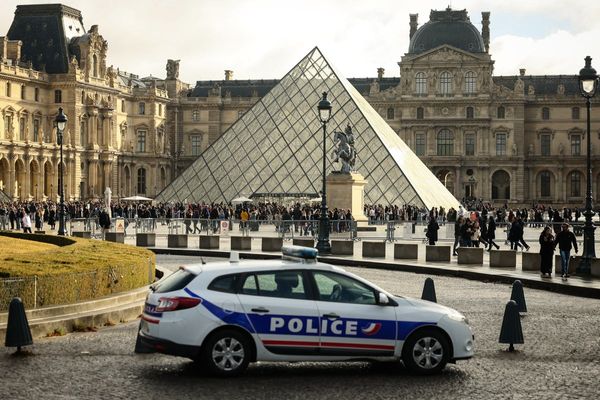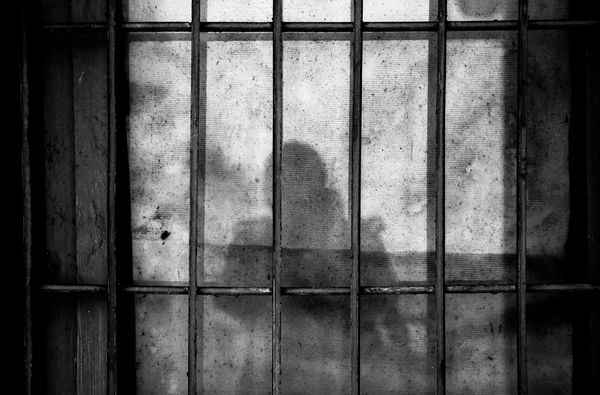
Good morning. Tony Blair is back and he has plans for the Middle East.
No, you have not woken up and jumped back two decades in time. The former Labour leader, who was put under pressure to resign after the disastrous decision to go to war with Iraq – which led to the death of a million Iraqis and created a vacuum later filled by the brutal Islamic State – is back in the headlines this week.
Blair has attended a White House meeting with Donald Trump and his Middle East envoy, Steve Witkoff, to discuss plans for postwar Gaza, according to recent reports.
The former British prime minister has been working on a proposal for several months for the governance in Gaza after the war ends. The 72-year-old has reportedly been doing so with Trump’s son-in-law Jared Kushner, the Israeli minister for strategic affairs Ron Dermer, and the Emirati foreign minister Abdullah bin Zayed.
Who appears to be missing from this roundtable on who will govern Palestinians in Gaza? The Palestinians themselves. While reporting suggests Palestinian president Mahmoud Abbas was briefed, there is little indication that Palestinians have any real say.
But Palestinians are not voiceless as our current leaders often imply. Nor must they remain at the mercy of those more powerful. They also have their own plan for a postwar Gaza. To understand what leaders of Palestinian civil society are calling for, and what drives their continuing struggle for self-determination, I spoke to Ubai Al-Aboudi, director of the Bisan Center for Research and Development and member of the steering committee of the Palestinian NGO Network. He is based in Ramallah. That’s after the headlines.
Five big stories
Ukraine | The UK and European Union have summoned their Russian envoys after missile strikes on Kyiv killed at least 18 people and damaged British Council and EU offices.
UK news | The Treasury is reportedly considering a tax on landlords in the autumn budget that would target income from rents. The proposals are centred on the expansion of national insurance to include rental income.
Iran | The UK, France and Germany have formally notified the UN that they have triggered the restoration of sweeping UN sanctions against Iran, giving Tehran 30 days to make concessions on access to its nuclear sites.
US news | The White House named non-scientist Jim O’Neill, a deputy of Robert F Kennedy Jr, to serve as acting head of the US Centers for Disease Control and Prevention (CDC), amid a standoff over the firing of director Susan Monarez whose lawyers said she could only be removed by Donald Trump himself.
Environment | The collapse of a critical Atlantic current can no longer be considered a low-likelihood event, a study has concluded, making deep cuts to fossil fuel emissions even more urgent to avoid the catastrophic impact.
In depth: ‘Palestinian narrative is being erased’
After stepping down as UK prime minister in 2007, Tony Blair served as the UN Middle East envoy until 2015. He spent years visiting Jerusalem pushing for a peace agreement between the Israelis and Palestinians, but there was no resolution, nor any meaningful development towards a Palestinian state.
Details of the plans being discussed by Blair, the US and Israeli officials remain scarce for now.
The far right in Israel remains animated by a proposal announced in February, weeks after Donald Trump was elected, in which the US president effectively called for Gaza to be ethnically cleansed, the land seized by the US, and an international resort built. The “Gaza Riviera” plan was widely condemned, including by western-backed Arab allies. Trump has been a lot quieter on this plan since.
In July, reports emerged that Blair’s thinktank worked with a project developing a postwar Gaza plan that included the creation of a “Trump Riviera” and a manufacturing zone named after Elon Musk. The project was led by Israeli business people using financial models developed by the US firm Boston Consulting Group (BCG).
The Tony Blair Institute for Global Change (TBI) said it was not involved in the authorship of the plan but two staff members took part in calls as the project evolved. BCG has distanced itself significantly from the work in Gaza, reportedly firing two partners who it said had misled senior management.
“There is not a single Palestinian at the table” in these reported discussions, Ubai Al-Aboudi told me, “whether it’s the Palestinian political leadership or representatives of Palestinian civil society and the wider Palestinian communities.”
He added: “This is colonial practice. Palestinians must decide their own governance and future. But instead, while we are being genocided, the same powers complicit in the genocide are planning our future.”
***
What Palestinians want
Al-Aboudi dismissed Blair not only as a war criminal who must answer for the horrors that unfolded in Iraq, but for his role as the Middle Eastern envoy, “which failed in reining in Israel’s policies of fragmentation, of, increased settlement activity, increased human rights violations against Palestinians, increased economic dependency of Palestinians”.
From the early days of the war in Gaza, Palestinian civil society has emphasised that any governance or rebuilding must have Palestinian agency at its core, Al-Aboudi explained, which factors in Palestinian cultural, historical, and socioeconomic heritage.
“It should take into account that 80% of the people living in Gaza, for example, are refugees whose fathers and grandfathers were ethnically cleansed from their villages back in 1948. It should take into account that there should be unity between the West Bank and Gaza, and it should take into account that the Israeli system of control over Palestinians cannot continue and should not be allowed or maintained. No Israeli should have a say or a call on the future of any Palestinian; this should be the number one lesson from this genocide,” Al-Aboudi said. “What’s happening right now is totally different. Palestinian voices are being totally ignored. The Palestinian narrative is being erased.”
He said Palestinian civil society embraced the Egypt plan for Gaza, which was backed by the Arab league and Europe, which would rebuild Gaza and support Palestinian technocrats, operating under the management of the Palestinian Authority (PA), to take over Gaza’s governance. The plan, which includes elections, would eventually lead to Gaza and the West Bank coming together as part of a Palestinian state.
“We have called for … a democratically elected leadership that would guide our people towards freedom … that would lift up our people. Unfortunately, all of these calls have fallen on deaf ears, whether from the international community or the US,” Al-Aboudi said.
***
The denial of Palestinian autonomy
Life for Palestinians in the West Bank means being trapped between a rock and a hard place: the Israeli occupation on one side and a Palestinian Authority that works with it on the other.
Al-Aboudi’s organisation, Bisan, works to secure socioeconomic rights for Palestinians and to advocate on their behalf “not just against Israeli occupation but also the Palestinian Authority and big business when they violate people’s rights”.
“Our work has put us in the crosshairs of everyone. I’ve been arrested by both Israeli occupation forces and the Palestinian Authority. Our organisation has been targeted, but we’re still operational, pushing for the basic right of Palestinians to live in dignity.”
But even the western-backed PA, widely criticised by many Palestinians for its role in working closely with the Israeli occupation, has been excluded from discussions about Gaza’s future. That’s largely down to the Israeli prime minister, Benjamin Netanyahu, and other Israeli ministers who have firmly ruled out any role for the PA in Gaza.
“What we have now is a propped-up dictator, Mahmoud Abbas, who was elected in 2005 for a four-year period that has now stretched for more than 20 years. He has been kept in power by outside support, not popular support. And now, even this propped-up leadership is not being consulted on what kind of leadership or governance should exist; let alone … the Palestinian community itself, the people who are going through the genocide right now,” Al-Aboudi said.
***
The work continues
For Al-Aboudi, the denial of Palestinian agency has been a process that has unfolded over many decades.
In 2021, Israel designated Bisan Centre and five other human rights organisations in the occupied territories as terrorists. This was widely rebuffed by the international community.
“Israel has always worked to stifle any kind of Palestinian agency … We have always been subjected to Israeli harassment.” But he explained that the sucker punch was landed when the Israeli government designated Bisan under the same label as al-Qaida and Islamic State. “Can you imagine that? Civil society organisations that write reports, provide aid for people, provide legal counselling, communicate to the world, to the UN, what is happening here, are being treated in the same way as IS?” Al-Aboudi said.
Yet the work continues. “We believe in every human being in the world. We believe in equality, we believe in dignity, and we believe our people deserve it like any other people around the world.”
With the Palestinians living amid one of their darkest chapters in their history, I asked Al-Aboudi why he still holds on to hope.
“This is the only thing that keeps us going … When we see millions of people on the streets of London or Manchester, or in Sydney, Australia … this gives us hope. We know that righteousness is on our side. We know that the people of the world feel for what we are going through,” he said.
And, he added, that regardless of what is being planned in backrooms, he ultimately believes that political agency will, at the end of the day, lie with the people. “The people have the power, and the people can claim back their political agency from corrupt governments and businesses.”
What else we’ve been reading
Patrick Greenfield has a fascinating look at the genuinely serious work of tackling invasive hornets threatening UK pollinators. Phoebe
I may be slightly (OK, very) biased, but I highly recommend my reported memoir Scattered, out in paperback now. It’s about the Somali civil war and how I went from being a child refugee to a Guardian journalist. Aamna
Nice analysis from Jessica Elgot on how the light summer news agenda has left the perfect gap for a barrage of attention-seeking announcements from Farage, who is very much not on annual leave. Phoebe
The number of families home-educating their children has more than doubled over the past five years. This interview with parents paints a worrying picture of the state of education today. Aamna
Love this one-in-a-million photo of tennis player Jasmine Paolini at the US open, and it sounds as if she loved it too. Phoebe
Sport
Football | Crystal Palace sealed a place in the Uefa Conference League as a goalless draw at Fredrikstad was enough for a 1-0 win on aggregate.
Cycling | Chris Froome was airlifted to hospital and due to have surgery after suffering a collapsed lung and breaking his back and five ribs during a serious crash while training in France.
Football | A man has been arrested in Lancashire after racist and abusive messages were sent online to the England defender Jess Carter during the women’s Euros in July.
The front pages
“Russian envoys summoned as UK and EU offices hit in Kyiv” – that’s the lead story in the Guardian print edition. “Rayner dodges £40,000 stamp duty” says the Telegraph. The Financial Times has “City fears mount over Reeves’ tax raid on banks to help fill £20bn fiscal hole” while the Mail runs with “Now Asda boss tells Reeves: stop taxing everything”. “French police ‘won’t go in sea’ to stop boats” proclaims the Express. “Harry ‘to meet Charles’” – the Mirror tags that as an exclusive. “All babies to be offered chickenpox vaccination” announces the Times. More details in the i paper: “Free chickenpox vaccination on NHS for 500,000 a year for first time”. Still on that, “They think itch all over” – terrible, Metro, just terrible.
Something for the weekend
Our critics’ roundup of the best things to watch, read, play and listen to right now
TV
Disaster at Sea: The Piper Alpha Story | ★★★★☆
On the evening of 6 July 1988, the Piper Alpha oil production platform in the North Sea suffered a catastrophic gas explosion in which 167 people were killed. After the disaster, a public inquiry struggled to form a complete picture of the event. This documentary series on iPlayer, copes with the challenge superbly, leaning heavily on survivor testimony – 61 men escaped from the rig – and combining it with a simple 2D diagram of the platform’s layout to give us the fullest picture possible. The shocking story is skilfully told by those unfussy dramatisations of the survivors’ words, as the actors leave us in no doubt about how deeply traumatised the men were by their experience. Jack Seale
Music
Blood Orange: Essex Honey | ★★★★★
This is an exquisitely eclectic portrait of grief. It combines gorgeous melodies with dancefloor rhythms, indie pop and languorous funk – and cameos from Lorde and Zadie Smith. Its primary mood is a very British kind of late summer-into-autumn melancholy: there’s a hazy, sunlit quality to a lot of the sounds. The melodies are frequently gorgeous, but inescapably sad. Inspired by the death of Hynes’s mother, the lyrics evoke both Greater London’s urban sprawl – “Ilford is the place that I hold dear,” he sings on The Last of England – and its more pastoral surroundings, the latter a relief from “the broken light” of the city on countryside. Alexis Petridis
Film
In the Nguyen Kitchen | ★★★★☆
In this heartwarming feature debut, Stéphane Ly-Cuong turns to the magic of the musical comedy to portray not only the dreams and the struggles of Vietnamese-French artists, but also a side of Paris seldom seen on screen. A hopeful performer and singer, Yvonne Nguyen (Clotilde Chevalier) can’t help but dream in songs. Without much luck getting cast in acting roles, Yvonne moves back in with her mother (Anh Tran-Nghia), who runs a restaurant in the outskirts of Paris. This push-and-pull lays bare the barriers faced in an industry where Asian characters are often seen as interchangeable. Phuong Le
Theatre
Juniper Blood (Donmar Warehouse, London) | ★★★☆☆
Mike Bartlett’s invigorating play is a drama about whether it is possible to live responsibly in our age of toxic capitalism. It begins as a blended-family satire with eco-arguments and generational clash bolted on. But with each act the ground on its earthy set turns, developing into what might be a state-of-the-nation play. Are the characters who seek freedom in fact in retreat? Is localism just a yearning for a purer past and can we rewild our way to a new pastoral idyll? Despite its lecturing and trowel-load of ideas, it is compelling and ambitious. Bartlett masterfully weds levity through social satire with complexity and depth of subject matter. Arifa Akbar
Today in Focus
Missing in the Amazon: the fightback – episode five
Revisited: Funerals are held for Dom Phillips and Bruno Pereira and there is hope that the election of President Lula will mean new protections for the Amazon – and that the killers of Dom and Bruno will face justice. But organised crime is widespread and deep-rooted. The investigative journalist Sônia Bridi tells the Guardian’s Latin America correspondent, Tom Phillips, about a man who allegedly not only may have helped plan the killings but may have ordered them. A man whose name strikes fear across the region
Cartoon of the day | Ben Jennings
The Upside
A bit of good news to remind you that the world’s not all bad
Two 13-year-olds have been leading an audacious project to save harvest mice – Britain’s smallest rodent.
Best friends Eva Wishart and Emily Smith embarked on a project to restore the animals in Devon after finding out that the species is threatened due to farming practices and habitat loss. In the two years since, they have bred dozens of the tiny rodents in their garages. On Wednesday they released 250 of them into a local nature reserve.
The pair managed to finance with £4,000 crowdfunded from the public. If the mice successfully breed, the girls plan to release more harvest mice, as well as common lizards.
“I would like more people in my generation to have the chance to do things like this,” Wishart said.
Sign up here for a weekly roundup of The Upside, sent to you every Sunday
Bored at work?
And finally, the Guardian’s puzzles are here to keep you entertained throughout the day. Until Monday.







